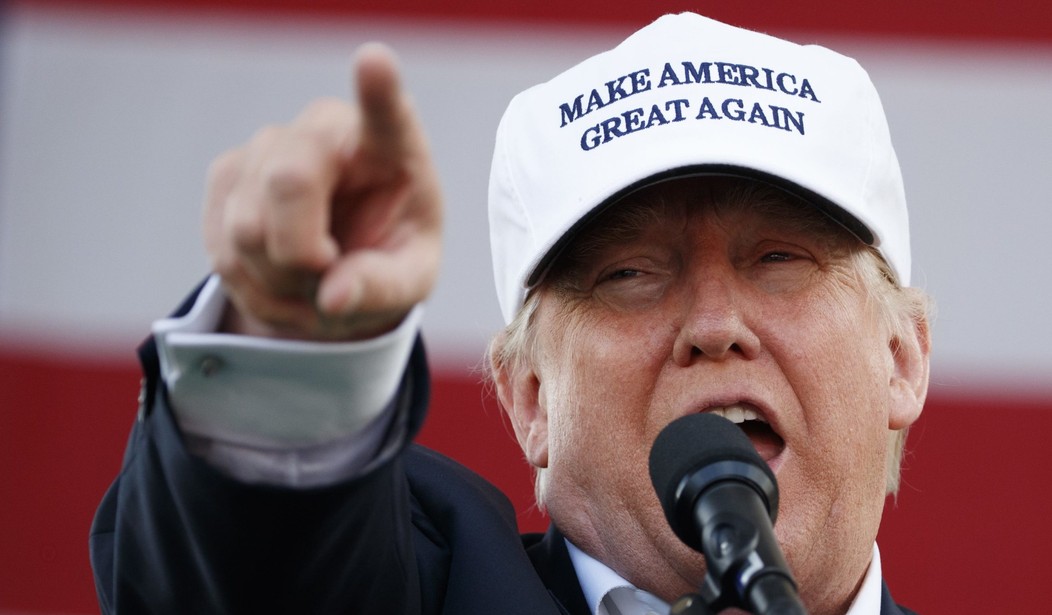Inauguration Day seems an appropriate moment to deconstruct “never Trump.” Never has become now. For better or worse, the Republican Party and the broader conservative movement will be redefined. That’s a source of apprehension for some, but also an immense opportunity.
Here are some reflections on the campaign, the election, and its aftermath so far.
Why #NeverTrump Was a Thing
Opposition to Trump’s candidacy emerged from three categories of concern. The first was political. Recall that, after Mitt Romney’s defeat in 2012, the Republican Party invested time and money to study why. The result was an “autopsy” report which indicated among other things that the GOP had a problem with minorities. The report also suggested that independent voters were turned off by the specter of social issues. It even called for the party to back “comprehensive immigration reform.” When Donald Trump emerged as a candidate for the Republican nomination, his campaign wholly defied that report.
“Never Trump” thus presumed that Trump would lose. Those of us associated with the movement were certain that his defeat would drag other races down with him. This sense of imminent defeat was magnified with every fresh controversy, from Trump’s denunciation of a “Mexican” federal judge to his comments caught on tape with Billy Bush.
The second category of concern was ideological. Republican politics had been trending toward the Tea Party for several years. Once a genuine grassroots movement, the Tea Party had advocated vigorously for “fiscal responsibility, constitutionally limited government, and free markets.” Tea Party Patriots, the largest national organization in the movement, had as its mission statement to “pursue public policy consistent with” those principles.
Donald Trump’s campaign defied those principals. Candidate Trump rarely discussed the budget. He seemed wholly ambivalent toward any concept of fiscal responsibility. He likewise seemed indifferent to the Constitution. His national populism was based not on any integrity with political philosophy, but on the whims of mob impulse. In particular, Trump’s rhetoric on trade aligned more with Bernie Sanders than with Milton Friedman. This was not, by any measure, the conservative candidate.
The third category of concern was the rise in prominence of the alt-right. A movement which virtually no one had heard of prior to their association with Trump, the alt-right remains a cover for white nationalism. Led by the likes of Richard Spencer, president of the National Policy Institute and coiner of the term “alternative right,” the movement’s single unifying principle is racial tribalism. The “alt” in alt-right signals its distinction from conservatism. They have no interest in fiscal responsibility or the Constitution. Indeed, the alt-right abhors the Enlightenment upon which American liberty was built. They are, more accurately, the anti-right. The fact that they found common cause with Trump was disturbing. More disturbing was Trump’s initial reluctance to denounce them.
Trump’s Victory Upended Everything
Election Night came and went. Trump won. The moment was catastrophic to the “never Trump” worldview. The electoral analysis which indicated Trump would lose proved inaccurate. The 2012 “autopsy” suggesting the party must be more inclusive was discredited. The popular notion among activists, that a candidate must be conventionally conservative to win, was blown out of the water. Finally, it appeared that no one cared about the alt-right.
While the left has lost its collective mind, spouting prognostications of doom from a fountain of imagined “resistance,” I have taken stock of what it all means. Is conservatism dead? Am I still a Republican? Has the party I grew to know and love been hijacked, or have I been wrong about its nature?
After weeks of sober reflection, I suspect that less has changed than I once thought. Knowing hundreds of fellow Republicans personally, many of whom enthusiastically supported Trump, I know full well that they are neither racist nor sexist nor suddenly less conservative than before. What they became is desperate.
The Obama years took a toll. It wasn’t just his administration. It was the corollary advances by so-called progressives in the culture war, sacking long-standing institutions and burning them to the ground. In the space of eight years, support for traditional marriage has gone from a prerequisite for electoral victory to a reason why people are losing their jobs. Healthcare has been devastated. Race relations have been undermined. Faith in our fellow Americans has been questioned from the White House. It has been a dark time indeed, and it has left people desperate for rescue.
Donald Trump, with his defiance of convention and disdain toward the establishment, emerged as a champion for those who would redeem America. He promised to “make America great again,” which acknowledged a loss felt by many. It was that simple. It had nothing to do with philosophy. It had nothing to do with principles or budgets or constitutional law. It was about faith, a faith in this country and her people which eight years of Obama had worn down to a nub.
Voters may not have agreed with everything Trump said, or sanctioned everything that he did. They just wanted a president who believed in them. They wanted to be treated with a form of respect which Obama and his party do not understand. The left’s sense of respect is that demanded by a child, tacit approval and permissiveness. The left “respects” people by catering to their feelings and satisfying their whims. Trump offered something different. Trump treated people like grown-ups, capable of taking a ribbing without devolving into a puddles of tears. Adults deal in merit and value, not wishes and feelings. Trump respected us enough to demand greatness rather than submission. That’s what voters responded to, and they cared about it more than any of the stuff the media — or “never Trump” — thought they should care about.
Never Say Never Again
In many ways, Trump’s victory signals titanic change. Obviously, Republican control presents all manner of possibilities. But the real opportunity transcends that. We need to note what this victory signals about the future of presidential politics.
There was a moment in history when the television changed how presidents were elected, when a young and relatively inexperienced John F. Kennedy outperformed a sweaty Richard Nixon in televised debate. No one saw that coming, just as few saw Trump coming now. Trump is to social media what Kennedy was to television. While “never Trump” folks like me were focused on his content, the plurality of voters in key states were captivated by his methods.
Taking to Twitter and forcing the media to follow was a tremendous coup. Trump neutered them. Their power had been access control. To get to the public, you had to go through them. Not anymore. Now they have to go through Trump. That changes everything.
Much has been made of Trump’s background in real estate and entertainment. He is a celebrity who has now become president. Politics has always had elements of entertainment, but now merges completely with the industry. This is the Donald Trump show as much as the Donald Trump presidency. We can lament that, or learn from it. Future candidates would be wrong to mimic Trump’s manner, but must adopt much of his methodology. Gone are the days of campaigns won on policy. From now on, it’s largely about production value. Election season has become sweeps week, and the best entertainer will win.









Join the conversation as a VIP Member